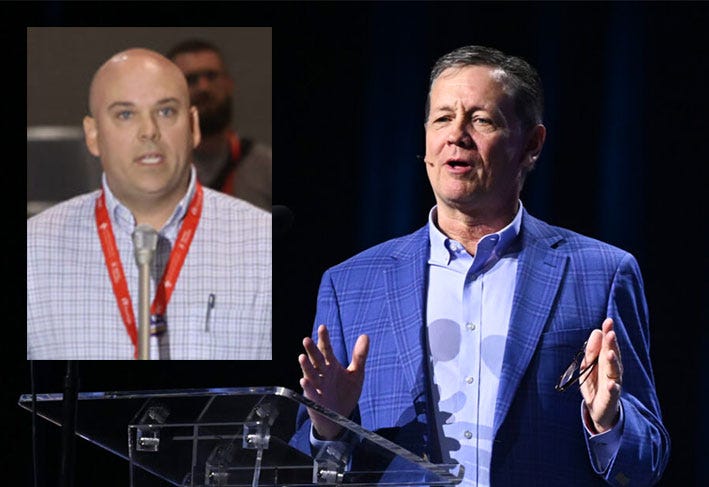Ezell to BGCT churches: NAMB will support church plants anywhere but in Texas
The state convention must first change its statement of faith from the 1963 to 2000 Baptist Faith and Message to receive support from NAMB inside the state.

The North American Mission Board (NAMB) will not fund church starts in partnership with the Baptist General Convention of Texas (BGCT) unless it changes its statement of faith from the 1963 to 2000 Baptist Faith and Message (BF&M), a Texas church pastor was told by NAMB President Kevin Ezell during the Southern Baptist Convention (SBC) Annual Meeting in Indianapolis.
During the NAMB report to the Convention, Dustin Slaton, pastor of First Baptist Church in Round Rock, Texas, asked Ezell to clarify what NAMB’s position is regarding church planting in the BGCT, according to reporting by the Baptist Standard.
Ezell responded by saying that NAMB would assist BGCT churches to start churches anywhere in North America other than Texas because those states affirm the 2000 version of the denomination’s statement of faith.
Slaton noted that while his congregation, like the BGCT, officially names the 1963 BF&M as its statement of faith, he affirms the belief that the office of pastor is reserved for men. He wants to lead his church to start complementarian Southern Baptist churches, and gospel-preaching churches, with NAMB providing the same resources, training, guidance, relationships, and financial opportunities as it would to a church that partners with another state convention.
A vote by Southern Baptist messengers at the 2024 annual meeting fell short of a needed two-thirds majority to approve the Law Amendment, which would prohibit women from serving in the role of pastor in the SBC Constitution. Read: Law Amendment prohibiting women pastors rejected; Southern Baptists elect N.C. pastor as president at annual meeting
Critics of NAMB and the SBC say churches with women with the title of “pastor” serve in various roles on the staff of thousands of Southern Baptist churches – including some church plants supported by NAMB – which goes against the 2000 BF&M.
Changes made in the 2000 BF&M reflect Southern Baptists’ responses to cultural shifts and theological discussions over time. The 1963 version was considered to be more ambiguous, SBC leaders say the 2000 version provides clearer guidelines regarding pastoral leadership and women’s roles within Baptist churches.
Notable differences between the two statements of faith are:
- Regarding pastors and deacons: The 1963 version lists Scriptural officers of the church are pastors and deacons. The 2000 version clarified that the office of the pastor is distinct from that of a deacon. It emphasizes the role of pastors as spiritual leaders and teachers within the church.
- Regarding the roles of women: The 1963 statement did not explicitly address the eligibility of women for pastoral roles, leaving it for interpretation. The 2000 version affirms that the office of the pastor is limited to men: “While both men and women are gifted for service in the church, the office of pastor is limited to men as qualified by Scripture.” Therefore, the pastor is the “scripturally ordained” leader of the local church according to 1 Timothy 3:1-7.
Slaton’s question to Ezell follows comments made by BGCT Baptist Executive Director Julio Guarneri told the BGCT Executive Board during a May 20 report: “I have learned that NAMB will no longer fund any church starts of singly aligned BGCT churches in Texas. They will only fund churches in Texas who are affiliated with SBTC (the Southern Baptists of Texas Convention), either singly or dually.”



